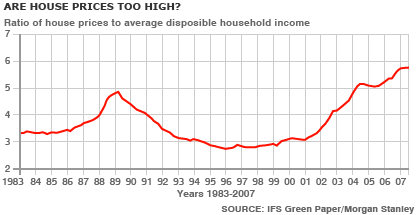Readers Question: Interest rates are determined by the markets and not by the Bank of England-where’s the truth?
An interesting question.
Firstly, it is worth bearing in mind that there are different interest rates in an economy.
Bank of England Base Rate. This is the most important interest rate because it is the rate at which other commercial banks need to borrow from the Bank of England. Therefore, the base rate is an important determinant of other rates in the economy.
Generally, speaking the Bank of England is free to set base rates to achieve its target of low inflation CPI 2%+/-1. At certain times markets may pressurise the Bank of England to change rates, but largely the Bank of England is free to set rates depending on how it sees fit.
- ERM crisis. in 1992, the government increased interest rates to 15% to try and protect the value of the £ (which was then in the ERM) However, the markets felt this interest rate was unsustainable in a recession. Therefore, people continued to sell pounds effectively forcing the £ out of the ERM and making the UK cut rates. This is an example of market forces forcing the monetary authorities to change interest rates, but, it is relatively rare.

